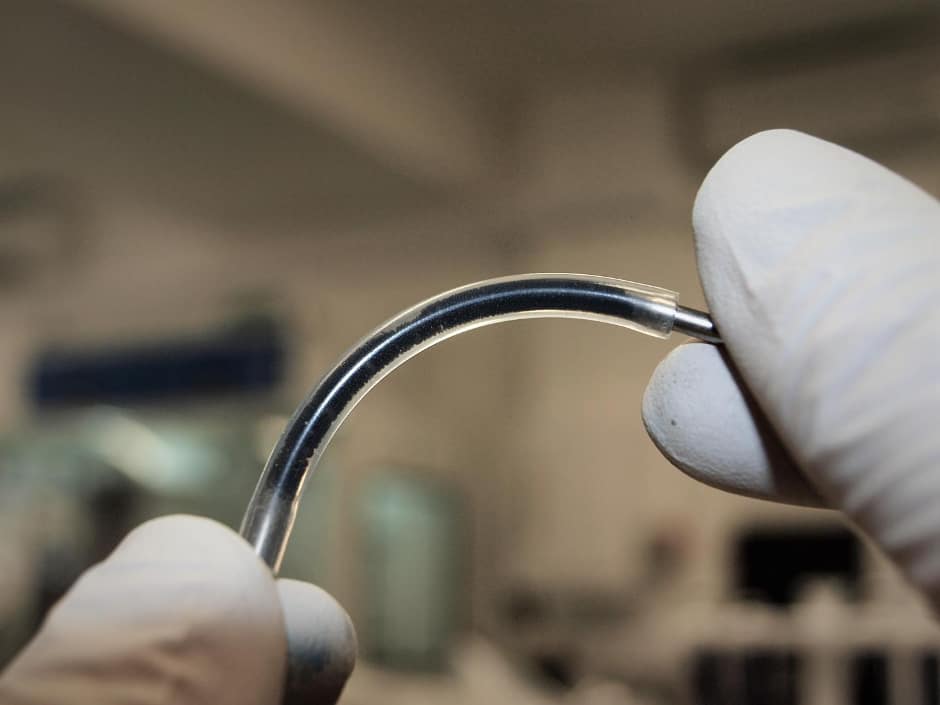Graphene gives strain sensor added sensitivity for medical monitoring
A new liquid-based strain sensor developed at Sussex University promises to monitor respiratory conditions more accurately and affordably thanks to the use of graphene.

The unobtrusive strain sensors are claimed to be the most sensitive liquid-based devices ever developed and could be used to monitor sick babies in remote parts of the world, or keep track of new babies' heart and breathing rates with automatic updates sent to their parents’ smart phones. According to Sussex University, the new device could also be utilised by people with conditions such as sleep apnea.
Key to the device is a liquid made from an emulsion of graphene, water and oil, which conducts electricity.
The breakthrough, by Prof. Alan Dalton, from the School of Mathematics and Physical Sciences, and his team of physicists at Sussex University, is described in a paper published in Nanoscale. A prototype strain sensor has been created and the team are talking to commercial sponsors to fund further research that will bring the product to market.
Register now to continue reading
Thanks for visiting The Engineer. You’ve now reached your monthly limit of news stories. Register for free to unlock unlimited access to all of our news coverage, as well as premium content including opinion, in-depth features and special reports.
Benefits of registering
-
In-depth insights and coverage of key emerging trends
-
Unrestricted access to special reports throughout the year
-
Daily technology news delivered straight to your inbox










National Gas receives funding to develop Gravitricity underground hydrogen storage system
One single rock salt mine - Winsford - has 23 <i>MILLION </i>cubic metres of void and even allowing for 10% of that void set aside for hazardous waste...